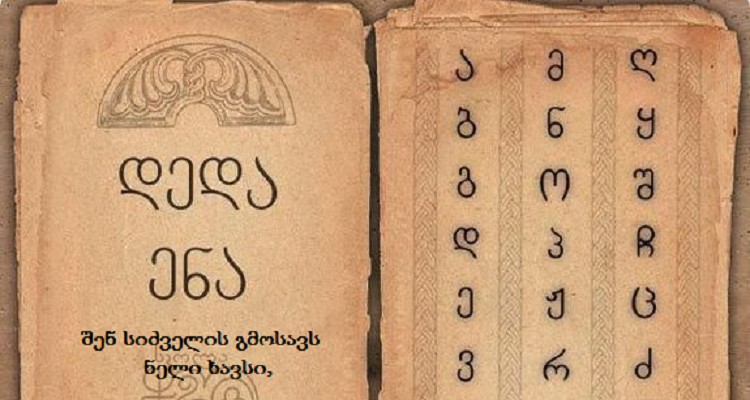Georgia celebrates Mother Language Day

On April 14, 1978, thousands of Georgians, including students, professors, and teachers took to the streets of Tbilisi in protest against the Soviet government’s decision to remove words in the Georgian Constitution solidifying Georgian as the state language. The Soviet government was forced to retract its decision and retain Georgian as the official state language in Georgia. Photo via edutime.ge
Georgian institutions and the public are celebrating Mother Language Day today, commemorating mass protests that forced Soviet authorities in 1978 to abandon plans to strip Georgian of the status of the official state language of the country.
Marking the day, Georgian Parliament Speaker Shalva Papuashvili said on April 14, 1978, the Georgian nation, “united as one”, defended their identity by saving the mother language - “the cornerstone of Georgia’s life and existence”.
The long and thorny path of the struggle for freedom was pursued by the Georgian people to save these three [language, faith and the state], because there is no nation without identity and no state without sovereignty”, Papuashvili stressed.
Tbilisi Mayor Kakha Kaladze also congratulated Georgians on Mother Language Day, noting April 14 was “another decisive battle to preserve the identity of the nation”, emphasising that such days were “a reminder of the strength of Georgia’s unity”.
The European Union Delegation in Georgia joined the celebration by saying the country “has preserved the uniqueness of its language which serves as the basis” for education and culture in Georgia.
The United States Embassy in Georgia also expressed admiration for the “uniqueness and beauty of the Georgian language”, and noted that the US celebrated the day of the “one of the oldest languages in the world” together with Georgians.
Andrius Kalindra, the Lithuanian Ambassador to the country, extended his congratulations in the Georgian language and said the mother language was the “basis of culture and identity” of every nation and its preservation for future generations was “an important mission”. “I hope that soon Georgian will become one of the official languages of the EU, like Lithuanian”, he added.
The French Ambassador to Georgia Sheraz Gasri congratulated Georgians on the day who “commemorate opposition to cultural Soviet domination”.
In his turn, Mark Clayton, the British Ambassador to the country, also extended his congratulations, and noted despite the difficulty of the Georgian language, it was "very precious to him", adding he continued the lessons of the language with "great pleasure".
On April 14, 1978, thousands of Georgians, including students, professors, and teachers took to the streets of Tbilisi in protest against the Soviet government’s decision to remove words from the Georgian Constitution solidifying Georgian as the state language.
The Soviet government was forced to retract its decision and retain Georgian as the official state language in Georgia.
Georgian language, which is written in its own unique writing system and has 33 letters in the alphabet, was granted the national status of cultural heritage in Georgia and was added to UNESCO’s list of Intangible Cultural Heritage of Humanity in 2016.
 Tweet
Tweet  Share
Share